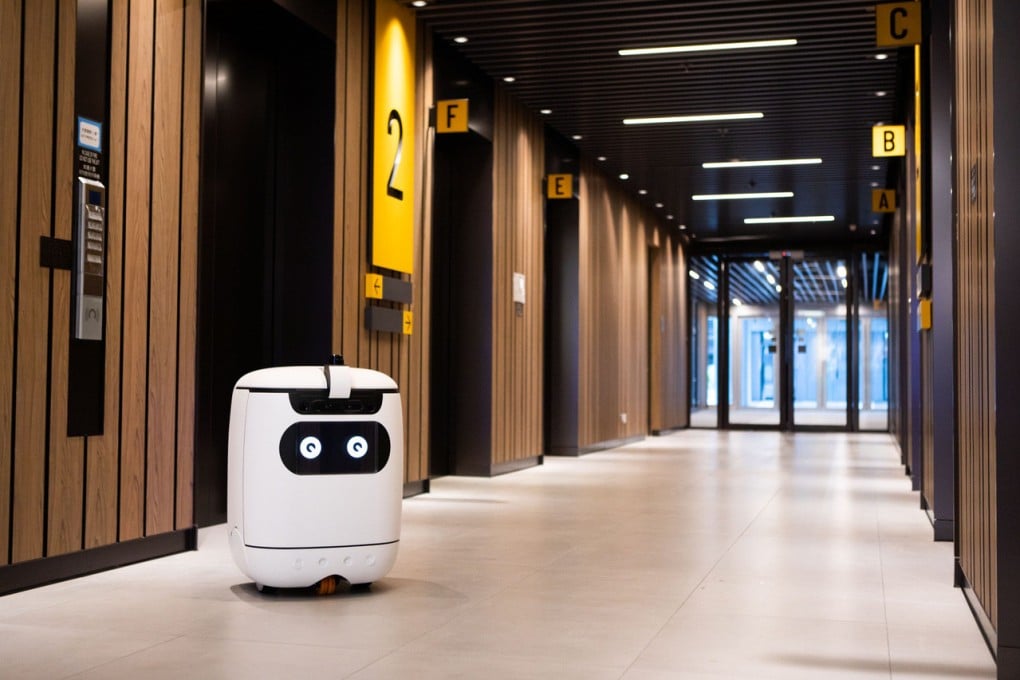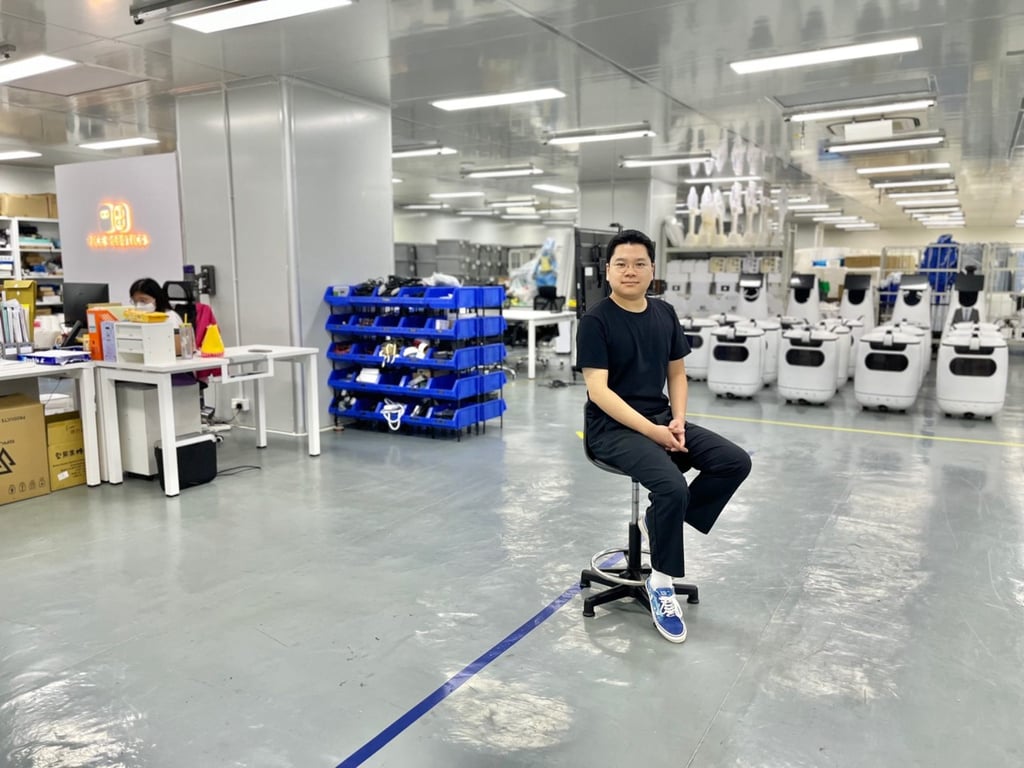From Hong Kong to Japan, start-up Rice Robotics brings ‘friendly’ AI bots to the service sector
- The start-up has deployed its fleet of autonomous robots in Hong Kong’s Citic Tower skyscraper, where they can freely use lifts
- The company has built up a lot of traction in the Japanese market, where AI robot adoption is being driven by labour shortages

The company has already deployed hundreds of its puppy-eyed AI robots throughout Japan and Hong Kong, and on Tuesday, it announced a fleet of its latest models - priced from US$10,000 each - were operating in the city’s iconic Citic Tower skyscraper.
“The beauty of this project is that in addition to deploying the robots, we have integrated them with Citic Tower’s building management system under one platform,” said Rice Robotics founder and CEO Victor Lee Kwok Hong.
As a result, the robots are now able to take the lift and travel around the building seamlessly and autonomously, providing a 24/7 operation, he added.
While the cute-looking bots are expected to focus primarily on disinfecting the building’s 33-stories, they can also perform other duties such as deliveries, security patrols, and chat-based concierge services, according to the company.
The project, which took months of planning, is Rice Robotics’ first deployment of multiple robots inside a commercial building in Hong Kong, and is part of a larger automation trend in the city.
